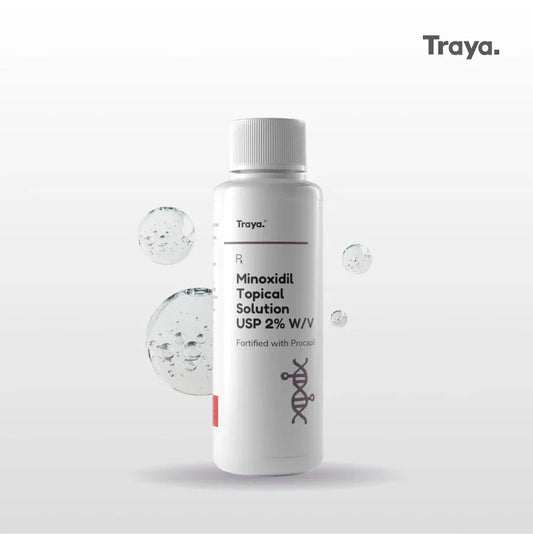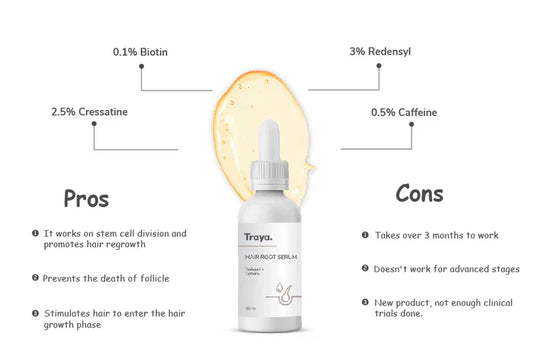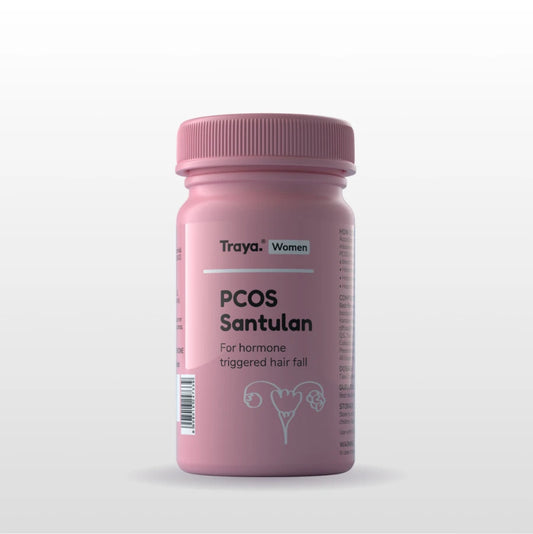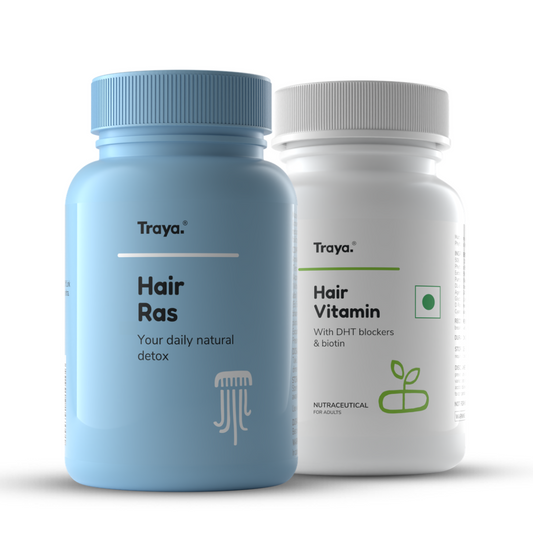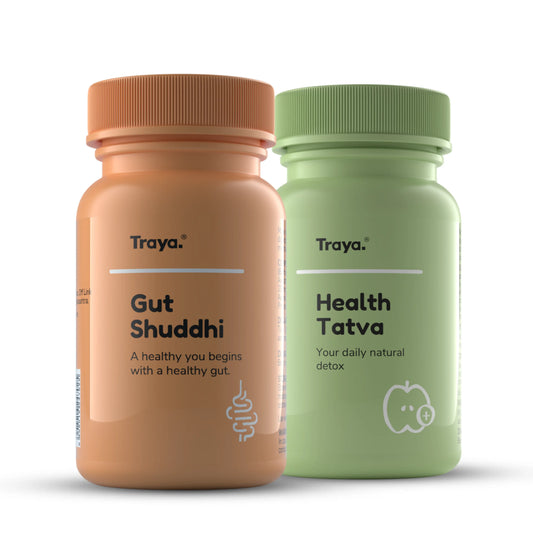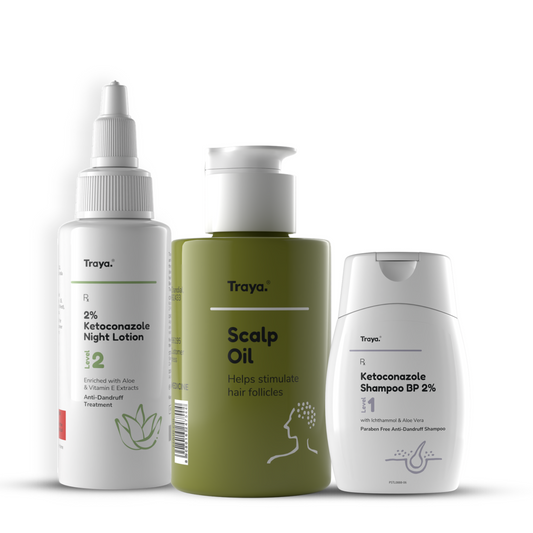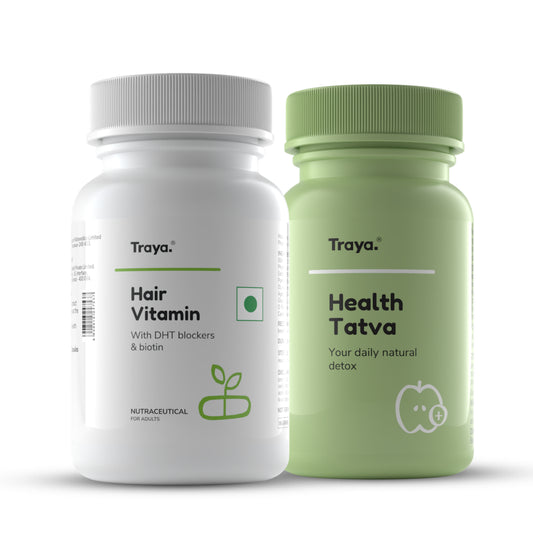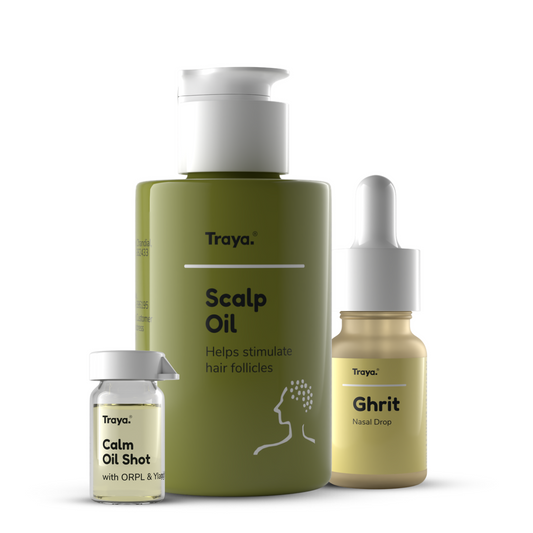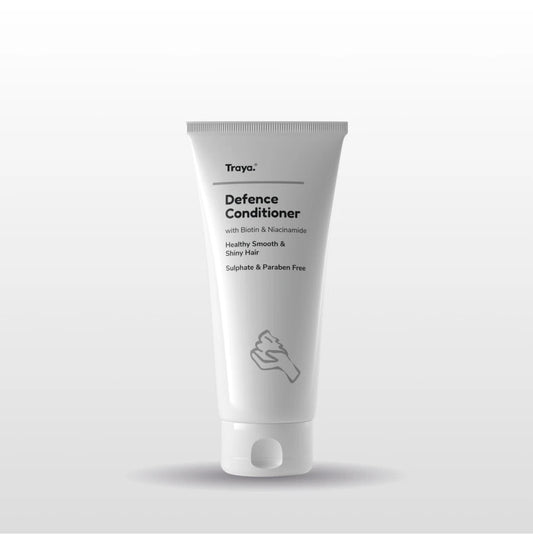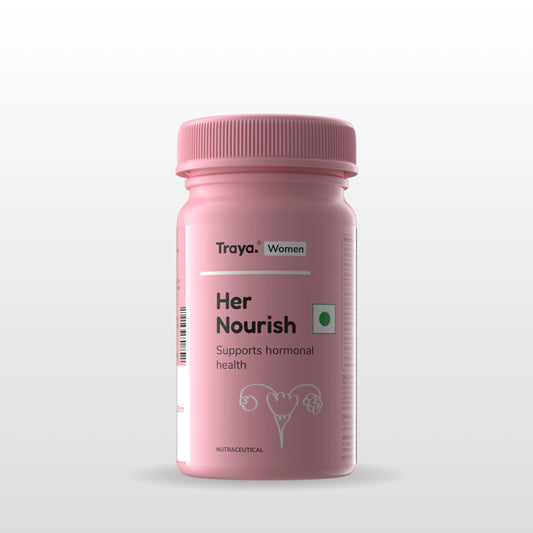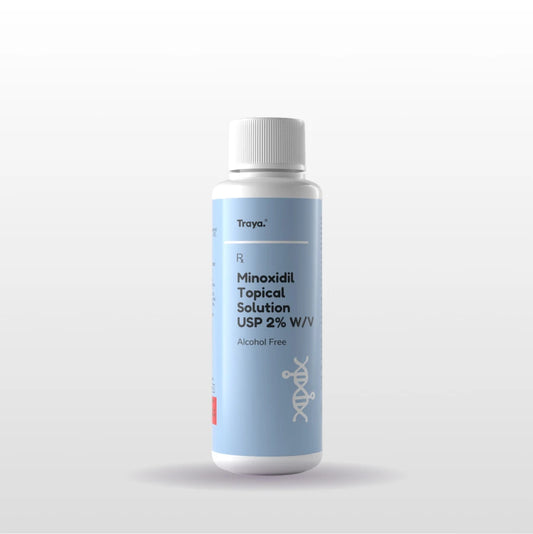
How to Reduce Hair Fall and Increase Hair Growt...
TL;DR Hair fall is not a random event in your life. It always has a cause behind it, the most common ones being hormonal imbalances (like DHT), nutritional gaps, stress,...

Best Treatment for Thinning Hair: Expert-Backed...
If you are suddenly seeing a lot of hair strands on your pillow or your scalp is becoming visible than usual, then it could be an alarming sign of...

How to Increase Hair Growth Naturally – Proven ...
Summary: Healthy, vibrant hair comes from treating the root causes of thinning, not just the surface. When hormones, nutrition, stress, digestion, or scalp health are out of balance, growth often...

How to Increase Hair Growth: Effective Methods ...
Blog Summary Hair loss affects many people, but effective solutions exist when you understand what's disrupting your hair's natural growth cycle. Common culprits include hormonal imbalances, nutritional deficiencies, chronic stress,...
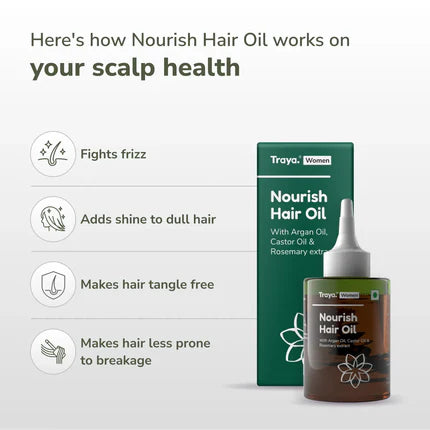
Best Hair Oil for Dandruff and Hair Fall – Ayur...
Summary Dandruff and hair loss are interconnected issues that require a unified approach to treatment. When your scalp's ecosystem becomes imbalanced, fungal overgrowth and inflammation cause flaking while simultaneously weakening...

How to Increase Hair Growth for Men: A Complete...
Summary Male hair growth is influenced by genetics, hormones, nutrition, lifestyle, and scalp health, with DHT sensitivity being the leading cause of thinning. Poor diet, chronic stress, and scalp buildup...
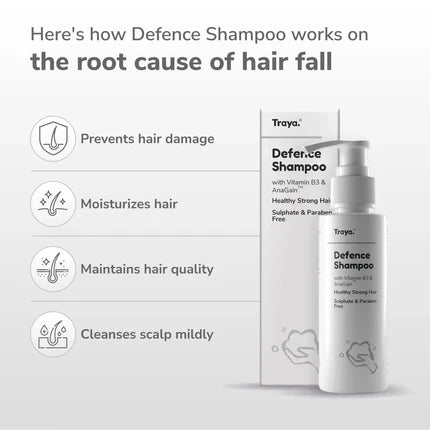
Best Ayurvedic Shampoo for Hair Fall – Gentle Y...
Summary When dealing with hair fall, Ayurvedic shampoos offer a natural alternative to chemical-laden products, which can irritate the scalp and worsen hair loss over time. Unlike these harsh shampoos,...

Doctor Recommended Shampoo for Hair Fall: What ...
Summary Hair fall is rarely just about having a dirty scalp. It is often caused by deeper issues such as DHT sensitivity, scalp inflammation, poor circulation, nutritional gaps, and stress....

Ayurvedic Treatment for Hair Fall: Heal the Roo...
TL;DR Ayurveda sees hair fall as a sign of internal imbalance, not just an external problem. Common causes: excess Pitta dosha, weak digestion, and stress. Treatment works in 3 ways:...

Best Hair Growth Oil Recommended by Doctors in ...
Summary Hair fall is one of the common concerns faced by Indians, followed by other related issues like dandruff, dryness and many more. When it comes to a solution,...

Best Hair Serum for Hair Growth and Thickness i...
Summary: Hair serums for growth and thickness go beyond adding shine, they deliver active ingredients directly to the scalp and follicles. The right formulations with Redensyl, Procapil, peptides, amino acids,...

Best Treatment For Fast Hair Growth: A Guide By...
Summary: Hair grows about 0.5 to 1.5 cm per month through a cycle of growth, transition, and rest, but stress, hormonal changes, poor nutrition, and scalp buildup can slow it...
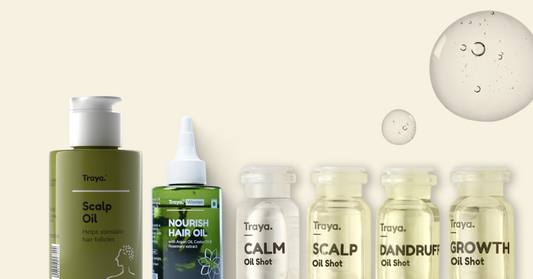
Best Anti-Hair Fall Oil: Strengthen Your Roots ...
No matter your age, gender, or lifestyle, hair fall is a worry that almost everyone faces at some point. For some, it’s the strands left behind on the pillow, for...

Remedies You Can Try for Hair Fall at Home
If combing or just waving your palm through your hair has started leaving a lot of hair strands on your comb or palm, then you are having a hair fall...

The Science Behind a Personalized Routine for Hair
If you’ve ever felt frustrated staring at a shelf full of half-used shampoos, conditioners, and serums, this is a struggle many people face. The cycle is familiar: you buy products...

Natural Hair Regrowth Treatments That Actually ...
Trying to grow your hair back the natural way? Skip the chemicals and expensive treatments, here’s what you can do instead. This detailed guide focuses on effective natural hair regrowth...

Best Medication For Male Pattern Baldness
Are you looking at more hair in your shower drain or looking back in photos to your hairline crawling? Then you are not alone. The male pattern baldness is super...

Complete Ayurvedic Guide for Hair Loss: Herbs, ...
Your hair fall is not just a cosmetic issue. It is one of the most important signs of deeper imbalances within your body. Nutritional deficiencies, stress, hormonal shifts, and toxins...

Best Treatment For Hair Fall at Home
Are you struggling with hair fall but want to stop it without salon treatments or chemicals? The question is how? The solution lies in your home kitchen. You don’t need...

How to Grow Hair Faster Naturally: 7 Proven Tip...
Looking for ways to grow your hair faster without chemicals or medications? You’re not alone. Whether you're dealing with thinning, breakage, or simply hoping to boost your hair's natural length,...

Redensyl Benefits: Why It’s Trending & How It W...
Did you hear about Redensyl? It is a molecule with lots of promise around hair care. What makes it stand unique in the crowd is that it is directly extracted...
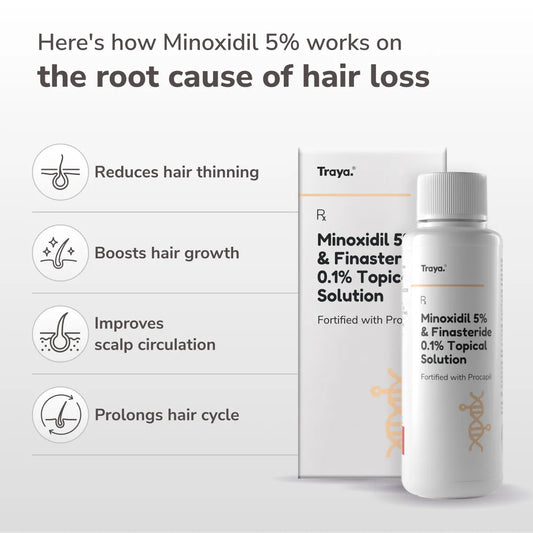
Minoxidil vs Redensyl: Which Works Better for H...
Are you confused between Redensyl vs Minoxidil for hair growth? You’re not alone. With hair loss becoming increasingly common among both men and women, many people are on the lookout...

How to Use Minoxidil for Hair Growth
Struggling with hair thinning and wondering how to use Minoxidil for hair growth effectively? You’re not alone. Whether you're just starting treatment or haven’t seen the results you hoped for,...
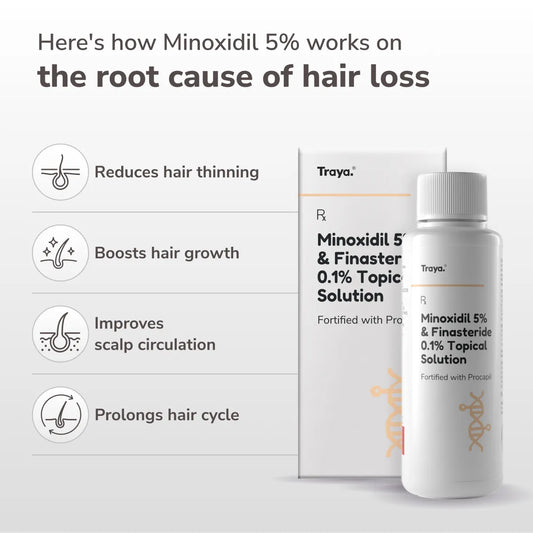
Minoxidil for Hair Regrowth: Real Science, Real...
Hair fall rarely begins with a dramatic clump in your hand. It starts slowly. Maybe a few more strands on your comb. A slight widening of your part. A moment...

Hair Fall in Your 20s? Here's How Minoxidil Can...
Hair fall in your 30s? Understandable. But in your 20s? That catches you off guard. You're not imagining it - hair fall is getting more common, and not just in...
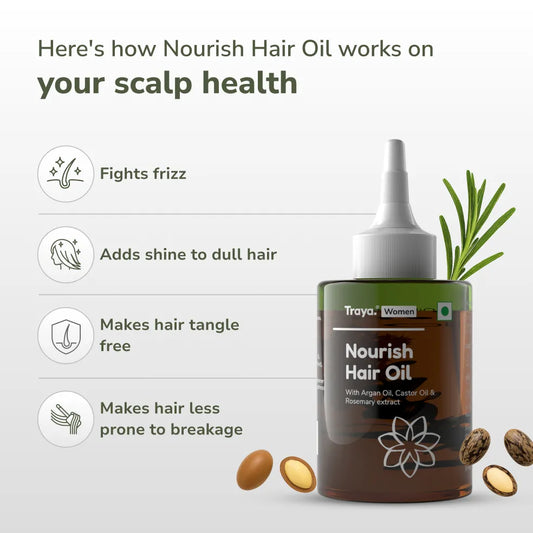
Top Oils Backed by Science for Hair Regrowth
If you're looking for the best hair growth oil recommended by doctors, chances are you've tried a few already, maybe coconut, rosemary, or a DIY blend passed down through generations....
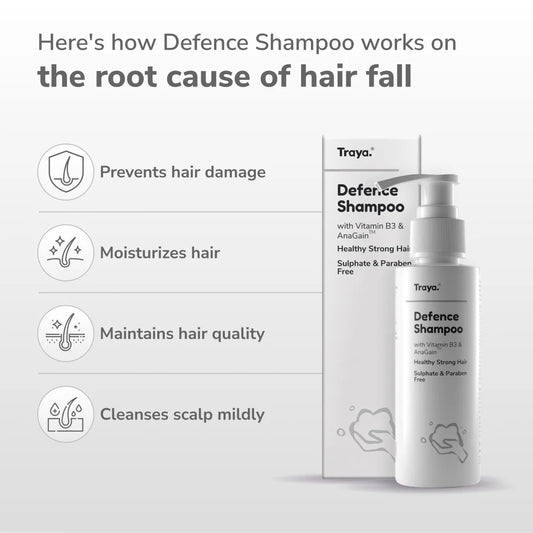
Why the Best Shampoo for Hair Fall Isn't Enough...
A thinning braid. Extra strands in the shower. A scalp that’s becoming harder to ignore. It might feel like a surface issue, but hair fall is often your body’s way...
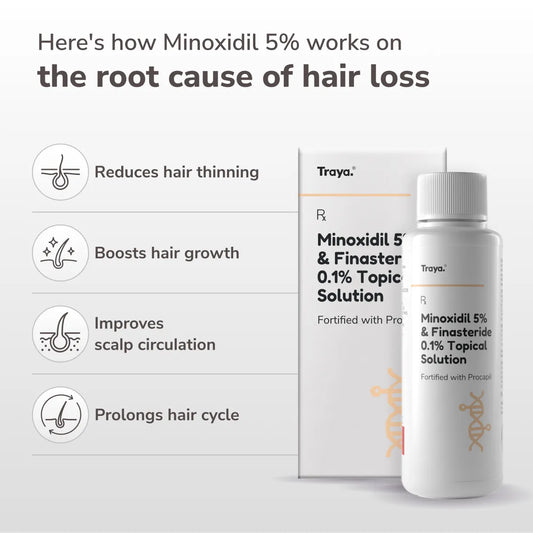
Minoxidil: Benefits, Side Effects & Who Should ...
Hair loss is something a lot of us deal with these days, whether you’re a man or a woman. And finding the right fix? That’s the tricky part. Sometimes, the...

How to Stop Receding Hairline? 4 Best Treatment...
A receding hairline can cause anyone to feel anxious about their hair. Questions like, “Am I getting Bald?” and “Is this the beginning of losing all the hair?” creep into...

Hair Fall Risk Test: Find Out How Severe Your H...
Tired of constant hair fall? Tired of looking up different causes and reasons behind it? Stressed about hair fall being noticeable? Do not worry, Traya is here to help! Hairfall...

Hair Loss Treatment in India | Holistic & Prove...
As the home of Ayurveda, India has always been at the center of Medical Treatments all across the world. Since ancient times, Indians have managed to deal with medical ailments...

Hair Fall Treatment in India | Ayurvedic & Medi...
Let me guess, you must be worried sick about the hair you saw on your pillow this morning. Or every time you walk past a mirror you sneak a peek...

How to Regrow Thinning Hair in Females: Causes,...
Although male baldness is more infamous, women suffer through it too. Just because they are well-hidden does not mean that women have not been silently trying to find solutions for...

Hair Loss Treatment for Men | Age-Wise Guide
Men's hair loss has been on the rise these past few decades. Increasing levels of stress and unhealthy lifestyle habits have led to a lot of men to start suffering...

Best Treatment for Hair Thinning in India | Tra...
If you wake up everyday, look at yourself and wonder "What can I do?” has become a part of your daily routine, you are at the right place. If you...

Causes of Hair Loss in Women and How to Treat I...
Hair loss in women is more common than most of us think, and more emotionally exhausting than it’s often portrayed. By the age of 50, nearly 40% of women experience...
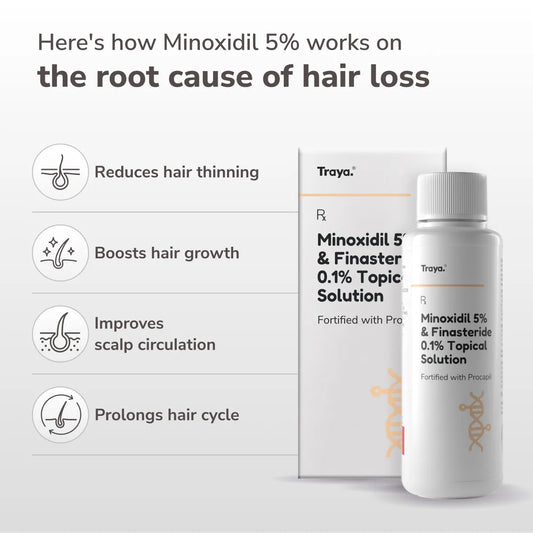
Does Minoxidil Work? Uses, Advantages, Treatmen...
Minoxidil is usually prescribed by doctors for hair growth, which is fine as long as there is supervision. But starting this treatment on your own is not generally advisable. It’s...

How to prevent white hair, delay greying and ha...
When people think about hair health, they often focus on strands—whether they are falling, thinning, or greying. But what many overlook is the foundation of hair health: the scalp. Scalp...

Dermatologist or Trichologist: Who should I go ...
Hair fall and hair thinning are problems that many of us face. And let’s be honest, almost all of us have spent several years and money to get voluminous hair,...

Minoxidil Results - Before and After | Results,...
Minoxidil is a popular FDA approved medication used for hair regrowth. There are many claims about minoxidil working for most people and it is also proven for showing positive results....

Stop Grey Hair Using Ayurveda
4 min read

Redensyl vs Minoxidil : What should I use for m...
Traya’s study highlights a concerning trend: 50.31 Percent of Indian Men Facing Hair Loss Are Below 25 Years of Age. These statistics were brought to light by staggering statistics with...
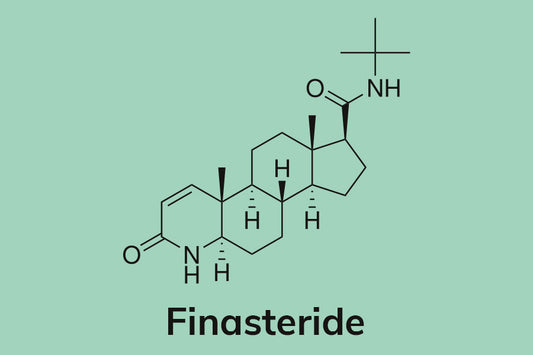
Uses of DHT blocker for Hair Loss
3 min read
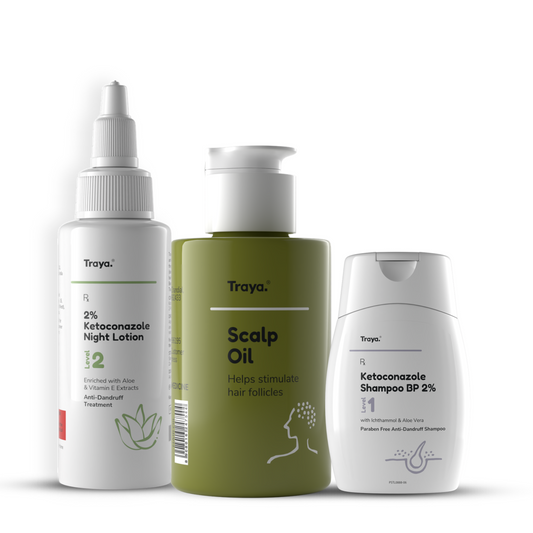
Top 10 Best Oil to Stop hair fall and regrow ha...
Hair oiling has been a trusted practice for centuries in India , and modern research backs its effectiveness. A study concluded that 70% of their participants who had applied oil regularly...

How to Stop Hair Loss and Regrow Hair Naturally...
3 Min Read The answer to “How to stop hair loss and regrow hair naturally” isn’t simple because well, regrowing hair in 3 weeks sounds ambitious. However, one can surely...

How to Regrow Hair on Bald Spot Fast
Thinning hair or bald patches are frustrating, often affecting one’s confidence and peace of mind. You're not alone in this journey, and the good news is that there are effective...
12 Best Hair Growth Oils Recommended by Doctor ...
3 Min Read Oil is an important aspect of hair care as it not only nourishes your hair and scalp but also helps in the blood circulation. Our scalp produces natural...




